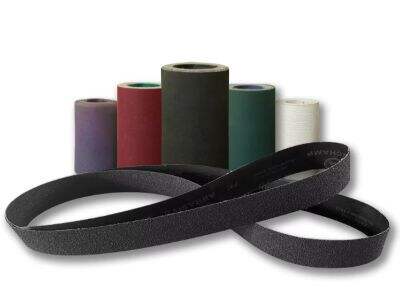Woodworking – If you pick the wrong sanding belt grit, it will become oily and shiny a bit quickly. Grit… Clearly this 100 grit sanding belt is the roughest (rough literally) of them all. If there are more of thin rough chunks, the grit is likely to be coarse and intense. There are just too many variations of materials and wood used in planks to assume one Sanding Belt will work on all. Understanding the grit to use for each project will have a drastic effect on how your final piece looks, so instead of diving in headfirst before sanding maybe these are some common reasons you might see people using a sander.
Measure Different Levels of Coarseness for Smooth Surface
Further, you must ensure to pick the right grit before using a sanding belt for that smooth finish. Lowest grits like 40 and 60 are perfect for removing a lot of wood to get the rough shape. They are perfect for heavy-duty tasks such as roughing. Those in the 80-120 grit range are classified as middle, intended for small bumps and imperfections. They are also great for finishing fine sanding and intermediate compounding between finish coats to make the wood look even more finished. Those in the higher grits; 150 and up to about (225, normally) are used for finishing our wood and can remove any lower abrasion belt marks. This is extremely important if you need your wooden to come back out with the proper finish.
How Sanding Belt Grit Works?
The abrasive pieces have different sizes and shapes that the sand belt uses. Made of coarse pieces connected to the sanding belt, this ensures that any additional wooden background flesh comes out easily. It has its jagged pieces and sharp edges, but also the standard ones with the dull ends. By using sharp chunks means that you can be able to perform better on the sanding by which it will give a desired finished output. Which is dependent on how many rough pieces there are and of course, the gap size between them. Understanding some of this could help you get the best Sander Belt for your needs.
Mistakes To Avoid Sanding
The sanding horrors you want to avoid are mistakes that could cause issues with your project. One of many mistakes is that you are using grits, which might be actually too low for what your project needs. It isn't the best thing to do as you can scratch and leave marks on the wood. This is another one of the mistakes made by those using ridiculously high grit. What you will be left with is a rough almost pitted finish. Also, a Belt of sanders that is already used up or consumed should not be employed as it would result to a worthless assignment. So definitely read the label, and get a grit that is closest to what you are doing. This will save time and so better proficiency.
So here are sanding grits that can make life easier for you.
Also it will make a hell of quicker and easier with right sanding grit. Yes, If you hit a coarse wood and want it smooth to bevel lower grits first. Once you have performed the same with it, now pick a higher grit to smoothen out your wood. More often than not you might have to spend time sanding away a scream if it's pretty loud because of how high grit with very rough surface, hardly ever works right. Medium and high-grits will be very effective in treating pre-smoothed wood for finishing treatments. This same technique also helps in obtaining a perfectly flat and smooth surface, which is an aesthetic end product.
And this all makes the choosing of an effective sanding belt grit a big difference when it comes to woodworking. Knowing how not to mess it up, and when which grades are appropriate is that ticket you need for banging in the end result. Whether you need to sharpen the ends of wood boards or polish your metal parts, Aimchamp has a sanding belt for all and will serve as an aid in finding out which grit and material is just right by offering high-quality types. If you follow these last tips, then you will surely get perfect results with your woodworking every time.

 EN
EN
 AR
AR BG
BG HR
HR CS
CS DA
DA NL
NL FI
FI FR
FR DE
DE EL
EL HI
HI IT
IT JA
JA KO
KO NO
NO PL
PL PT
PT RO
RO RU
RU ES
ES SV
SV TL
TL IW
IW ID
ID SR
SR ET
ET MT
MT TH
TH TR
TR FA
FA AF
AF MS
MS GA
GA CY
CY MK
MK EU
EU KA
KA LA
LA NE
NE